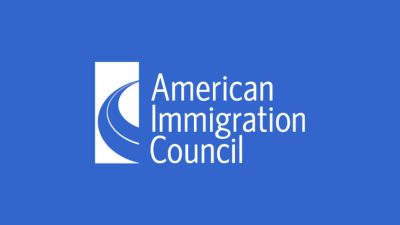Immigration Courts
Immigration courts play a crucial role in ensuring that immigration laws are applied fairly and consistently, providing due process to those facing removal. Learn more about issues facing the courts today and explore the actions we're taking to ensure the rights of immigrants are upheld and legal integrity is maintained.

Senate Approves Unprecedented Spending for Mass Deportation, Ignoring What’s Broken in our Immigration System
Washington DC, July 1, 2025 — On July 1, the U.S. Senate passed a budget reconciliation bill that includes an unprecedented allocation of funds for immigration detention and enforcement while simultaneously stripping healthcare from millions of Americans. The bill, passed today with Vice President J.D. Vance contributing the tie-breaking vote,… Read More

What’s in the 2025 Reconciliation Bill So Far?
Analysis of the immigration and border-related spending recommendations for reconciliation measures approved in the House Judiciary, Homeland Security, and Armed Services Committees in FY 2025. Read More

U.S. Government Illegally Detains Father of Two in Notorious Salvadoran Prison
The American Immigration Council, National Immigration Project, and the Center for Constitutional Rights today filed an amended habeas corpus petition on behalf of Mr. Edicson David Quintero Chacón. Read More

Trump Is Trying to Deter Us From Representing Immigrants in Court. It Won’t Work.
On March 22, the Trump administration issued a memo, directing the Attorney General and the Secretary of the Department of Homeland Security to take disciplinary and punitive action against attorneys practicing in our national courts. While the memo is broad, it takes particular aim at immigration lawyers, pro bono… Read More

Federal Appeals Court Upholds Block on SF 2340, Iowa’s Anti-Immigrant Law
ST LOUIS, MISSOURI, JAN. 25, 2025 — The U.S. Court of Appeals for the Eighth Circuit today upheld a temporary block on SF 2340, Iowa’s worst-ever immigration law. The Iowa law was passed during the 2024 Iowa legislative session and was temporarily blocked by the courts just weeks after. It conflicts… Read More

Misguided Laken Riley Act Does Nothing to Fix the Problems That Plague Our Immigration System
WASHINGTON, JAN. 22, 2025 — Today, the House voted in the final step for passing S. 5, legislation that will have devastating implications for many immigrants in the United States and our system of legal immigration alike. The bill eliminates due process for many immigrants, including some… Read More

Seeking Stays of Removal
This practice advisory discusses the law, procedure, and practical tips for seeking a stay of removal from DHS, immigration judges, the Board of Immigration Appeals, and the U.S. courts of appeals. Read More

New Report Details Catastrophic Impact of Mass Deportation and Family Separation Plans
A new report details the catastrophic costs of a potential mass deportation and family separation plan. Read More

Supreme Court Allows Deportations Without Adequate Notice, Backtracking on Previous Rulings
The Supreme Court made an about-face on June 14, holding that immigration judges may order noncitizens deported if they do not appear for their immigration hearings even if the government never provided them with a Notice to Appear (NTA) with the date and time of their immigration hearing. Under… Read More

Iowa Blocks Hateful Anti-Immigrant Law
In a victory for immigrant communities and families, on June 17 a federal district court in Iowa issued a preliminary injunction to block SF 2340, one of the worst, most far-reaching immigration laws ever passed in the state of Iowa. Read More
Make a contribution
Make a direct impact on the lives of immigrants.
